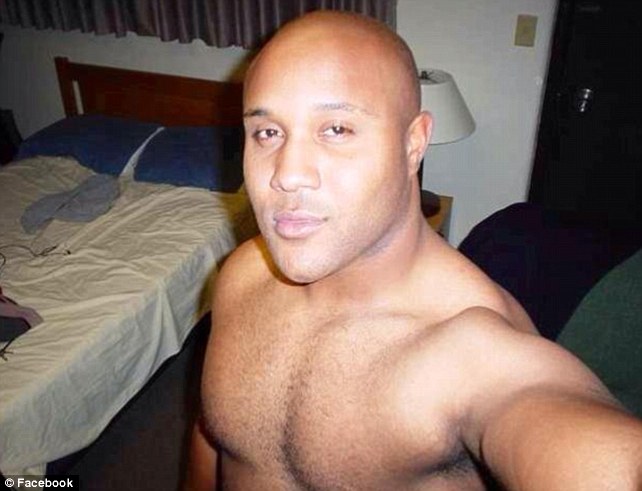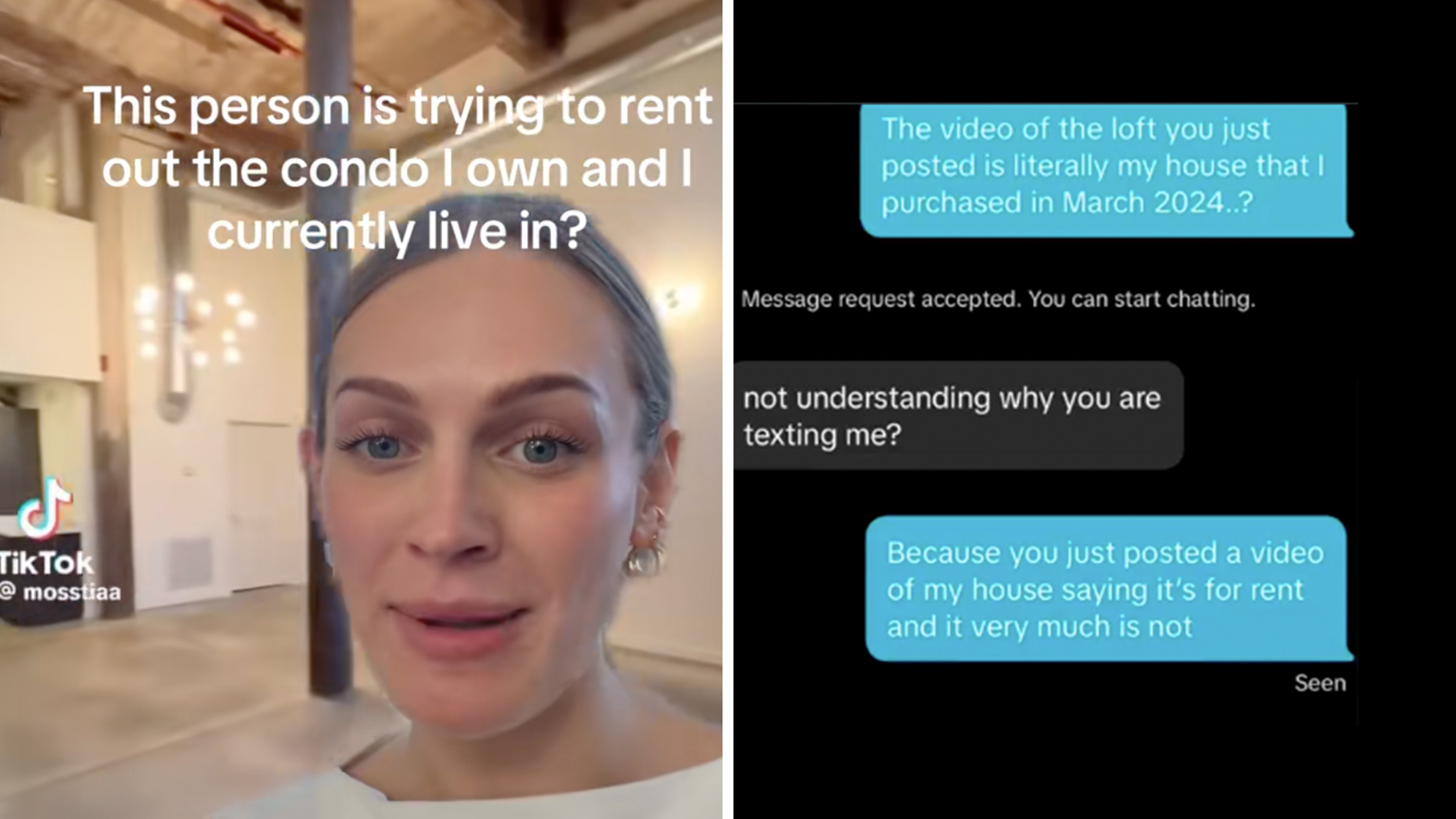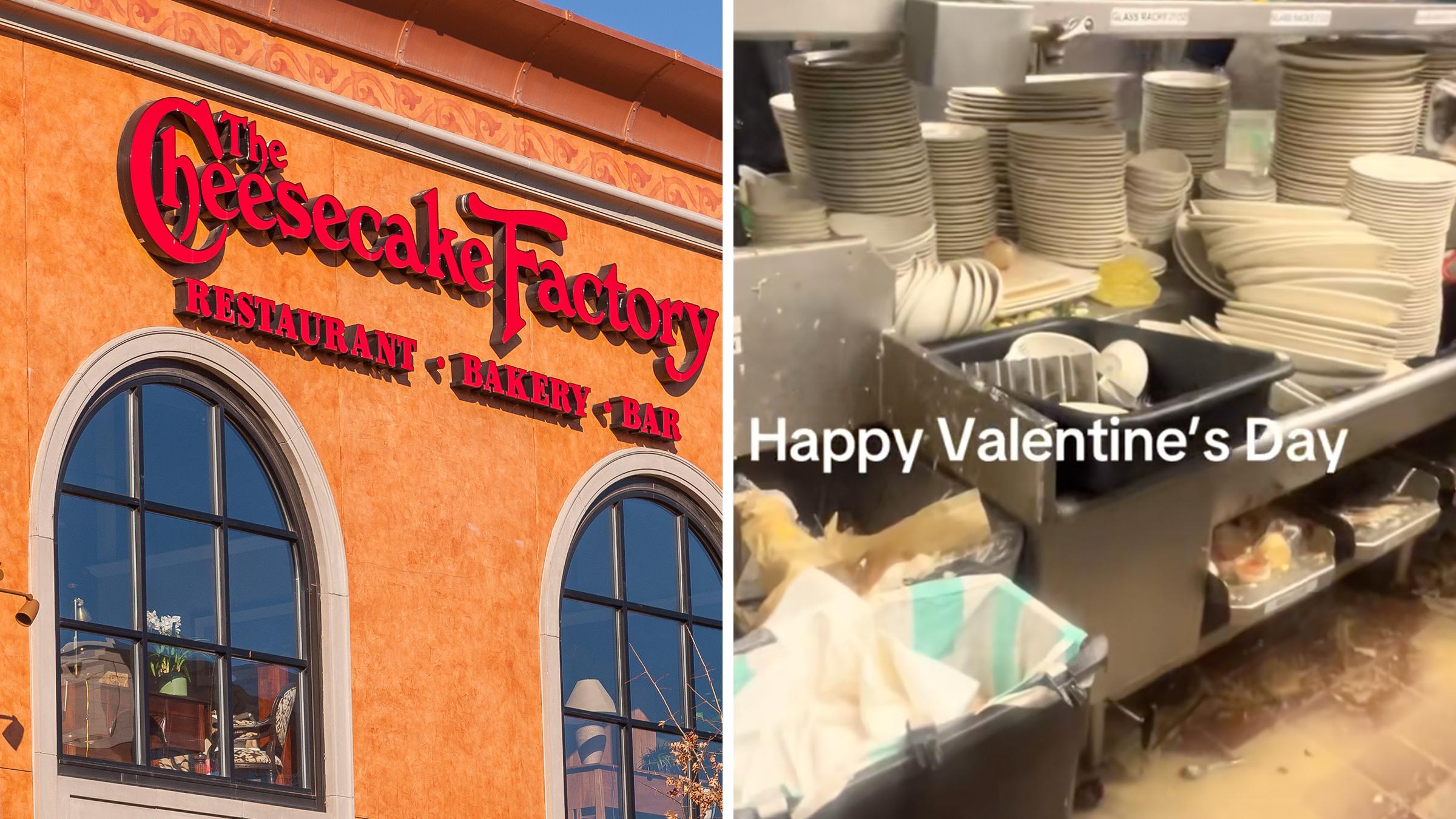By BEN BRANSTETTER
The Internet has long been the denizen of police brutality activists, ranging from “Don’t taze me, bro” to Occupy Everywhere to the current armchair justice sensation: Chris Dorner. In case you've been living in a hole, Dorner was a former member of the LAPD who was fired in 2009 after filing a complaint of unnecessary force against a fellow officer. The officer in question—according to Dorner, the victim in the complaint, and the father of the victim—had kicked a handcuffed suspect repeatedly during an arrest.
Slowly details began to trickle out that clouded the case: the claimant victim had been treated for head injuries at a local hospital; he a diagnosed sufferer of schizophrenia; in a later deposition he recalled being violently kicked in the head; several nearby hotel employees reportedly saw “most” of the incident and saw no such abuse. The LAPD lead an investigation into the incident and, in the end, decided no wrongdoing had occurred. Chris Dorner was then fired from the force for making a wrongful accusation.
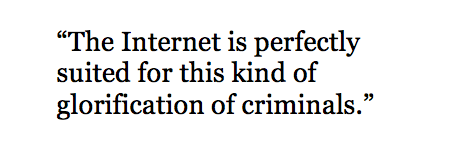 Within the past week, Dorner has gone on a shooting spree to avenge what his 14-page manifesto called a wrongful termination. This began with the shooting of on February 3 of Monica Quan, the lawyer who represented Dorner during his dismissal hearing, and her husband. In his manifesto, Dorner also vows vengeance against the life of Randal Quan (Monica’s father, and an LAPD Captain during Dorner’s tenure), as well as several other officers whose names are redacted for obvious reasons. On February 7, one of these officers was attacked and shot dead while on duty. Sought after in the largest manhunt in LA County history (which even involved the first high-profile use of domestic drones). Dorner is presumed dead after a five-hour standoff with police in San Bernadino County.
Within the past week, Dorner has gone on a shooting spree to avenge what his 14-page manifesto called a wrongful termination. This began with the shooting of on February 3 of Monica Quan, the lawyer who represented Dorner during his dismissal hearing, and her husband. In his manifesto, Dorner also vows vengeance against the life of Randal Quan (Monica’s father, and an LAPD Captain during Dorner’s tenure), as well as several other officers whose names are redacted for obvious reasons. On February 7, one of these officers was attacked and shot dead while on duty. Sought after in the largest manhunt in LA County history (which even involved the first high-profile use of domestic drones). Dorner is presumed dead after a five-hour standoff with police in San Bernadino County.
Whether Dorner was fired appropriately or not cannot be known. Whether that officer really kicked a schizophrenic man while he was handcuffed and on the ground can also not be known. What is known is that the LAPD does have a lengthy and storied history of excessive force. And it certainly doesn’t help that the LAPD has shot three entirely unrelated civilians in their hunt for Dorner.
All these factors have led into a certain kind of narrative that could only exist online: Chris Dorner as a crusader of the truth, fighting to correct his reputation in the face of a massively corrupt and inept institution which would rather hide its mistakes. 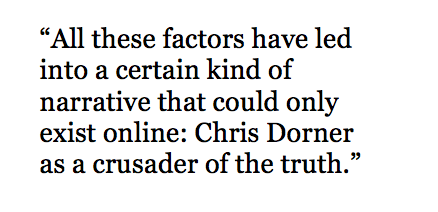
A Facebook page entitled “We Are All Chris Dorner” currently sits comfortably above 2,000 likes. Articles centering on Dorner’s innate goodness or questioning the motives of the LAPD have risen to the front pages of Reddit. “Don’t Shoot I Am Not Chris Dorner” T-shirts have become a small commodity in Southern California. It’s Pretty Boy Floyd all over again, but instead of posters and hobo signals, we’re using assumption and comment threads to glamorize a criminal.
The Internet is perfectly suited for this kind of glorification of criminals. The most famous example could be considered the Anonymous collective who—depending upon your views on international copyright and property laws—have broken more crimes in the name of activism than Greenpeace. The Occupy movement broke laws by its very definition.
Perhaps most pertinent to this case is the story of Colton Harris-Moore, a.k.a. “The Barefoot Bandit.” In 2008, Harris-Moore was a halfway-house runaway at the age of 17, stealing cars, robbing houses, and eventually escaping to the Bahamas in a stolen commuter plane (where he was caught in 2010 and sentences to seven years in prison). In the fashion of Depression-era Robin Hood robbers, Harris-Moore would also drop the cash he had stolen on the front steps of charities, hospitals, and veterinary clinics. These stories tend to have the perfect memetic mixture of suddenness and made-for-film plot development so the Internet may devour them, relishing them in much the same way mainstream culture devours tabloids.
Why is it that for the Internet, stories of criminals like Harris-Moore and Dorner seem to have so much more power than the good guy ones? Look at Kai, the hatchet-wielding hitchhiker who saved a woman’s life. Or Larry DePrimo, the NYPD cop who bought a new pair of boots for a homeless man. Heroes come and go faster than villains will ever peak.
Our society will always have skeptics, the ones who see the powers that be as worth questioning—even if that means supporting people like Chris Dorner who used brutal violence to make their point. There is, one could also argue, a general anti-cop attitude in our culture, even though for most people the worst thing a police officer has done is make them late for work.
But websites like Reddit foster and magnify a more extreme narrative, one that favors a steroidal skepticism over what may in fact be a fairly cut-and-dry multiple murder case. One can easily see how, if 4chan were around at the time, the Unabomber’s police sketch could have been blasted all over the Internet along with a witty, Impact-fonted statement which would have had thousands of slacktivists agreeing with his anti-technology writings. 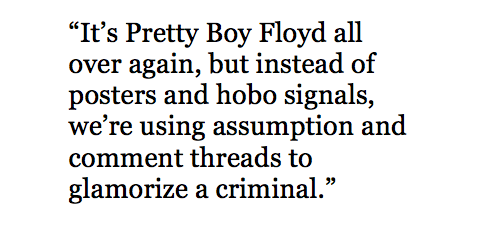
Let us be very clear: Chris Dorner was a murderer. He proclaimed himself as such in his writing (sent to the studios of Anderson Cooper). He took the life of four different people. Let us also be clear: the LAPD is far from a perfect organization and very well may have fired Dorner for all of the wrong reasons. But the first statement far outweighs the second.
The Internet’s innate desire to have a hero to cheer on must not be matched against the value of the rule of law, nor against the brutal loss of human life. Yes, the LAPD may not be a shining beacon of justice at all times. But even in the cases of widespread and institutional corruption (which exists in police departments all across the country), we—like the gangster-idolizing Okies of the 1930’s—must not let ourselves be drawn into putting more value in a Tarantino-style catharsis that we’ve fictionalized on the Internet than into true, deliberated justice. A better use of our energy would be asking ourselves why the Internet—more so than mainstream culture—is hellbent on proving the criminals right and the civil servants wrong.
The Wild West nature of the Internet has been much discussed, and even targeted by the law in legislative attempts such as SOPA or CISPA. Perhaps their defeat has as much to do with the power of Google and Facebook as it does with the strain of American character and history which respects the rebel, defends the wild in the face of government intervention. The Internet if nothing else, is informed, very well informed—with many different voices, and arguments. There are so many different arguments, all with reams of evidence to point to, many of which may cause the average American to lose faith in the institutions which surround us.
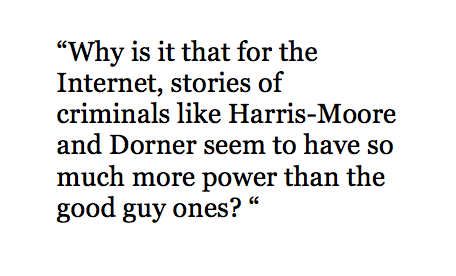 Even ruling out the conspiracy theories, there is enough legitimate information out there, that now all have access to, to test the loyalty of even the most diehard patriot. Perhaps this is why the Internet loves vigilantes—at the slightest glimmer of someone rebelling against the system, the Internet pounces in a burst of fascination; an obsession with those seemingly brave enough to do more than start a hashtag.
Even ruling out the conspiracy theories, there is enough legitimate information out there, that now all have access to, to test the loyalty of even the most diehard patriot. Perhaps this is why the Internet loves vigilantes—at the slightest glimmer of someone rebelling against the system, the Internet pounces in a burst of fascination; an obsession with those seemingly brave enough to do more than start a hashtag.
The dark side of this hero-worship is that it’s a nasty fiction for the family and friends of Randal Quan, Monica Quan and her husband, and for the other officers on that list. It is time to admit there are some stories with no heroes, and misplacing that hope on a crazed murderer in the name of justice will do far more damage to our faith in society than any cop or killer (or both) is prepared to do.
Ben Branstetter is a writer and blogger living in Central PA. He attended the Milton Hershey School and studied Secondary Education at Penn State University. His work has appeared on Thought Catalog, The Useless Critic, God of Lamb, and he has appeared on HuffPo Live. He can be reached through email at branstetterb@gmail.com and can be found on his Twitter, @BenBranstetter
Photo via Facebook
